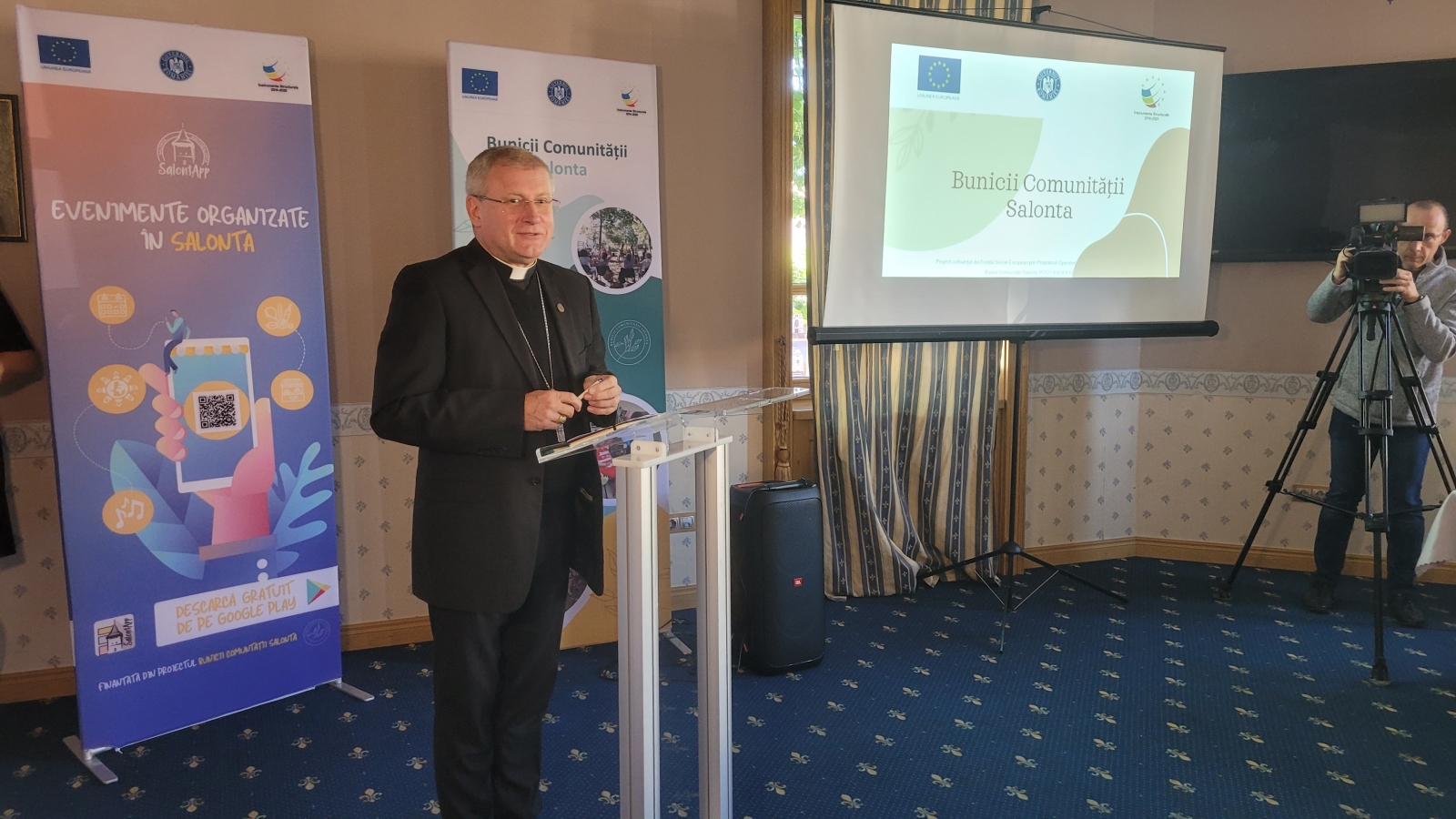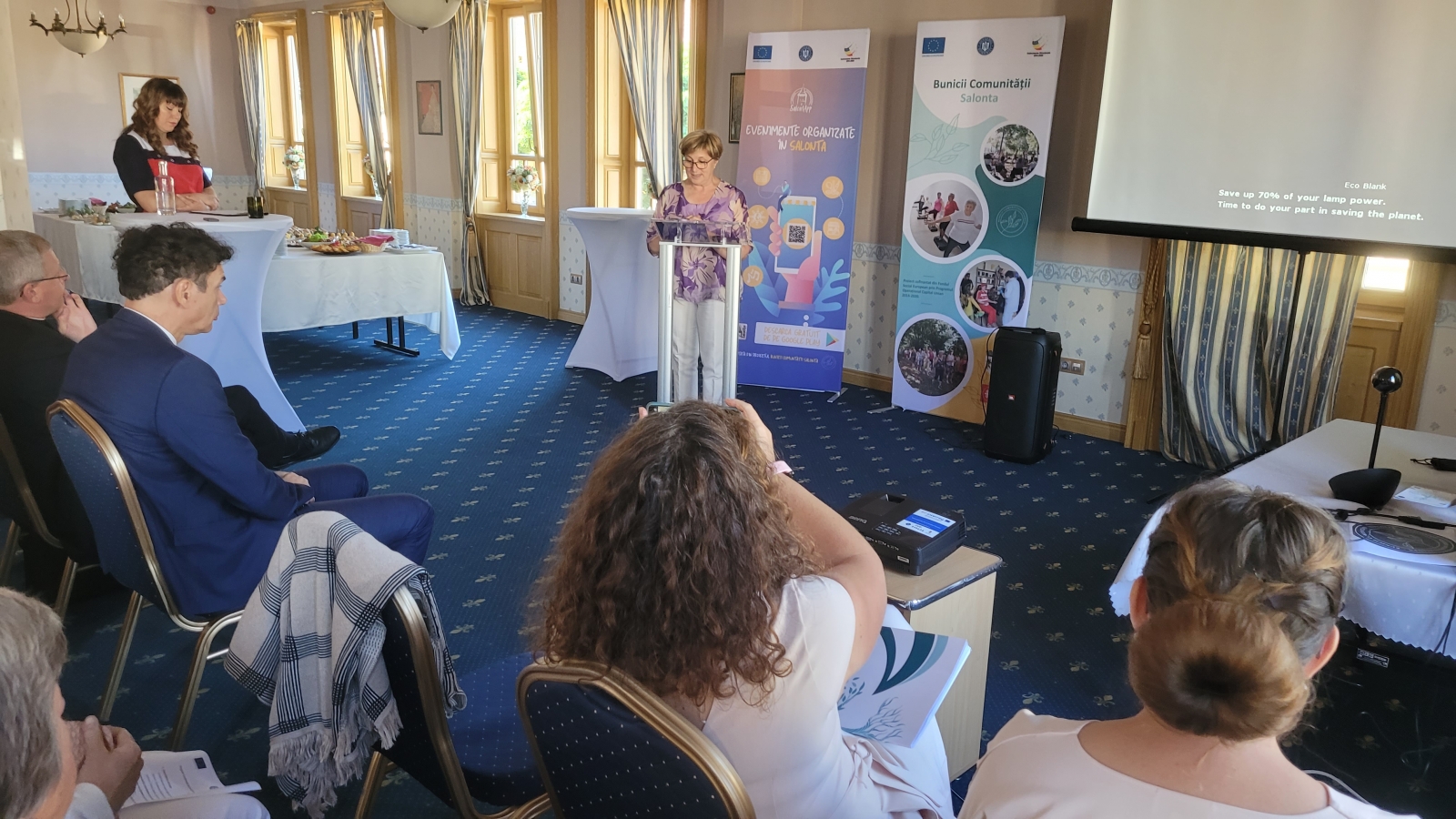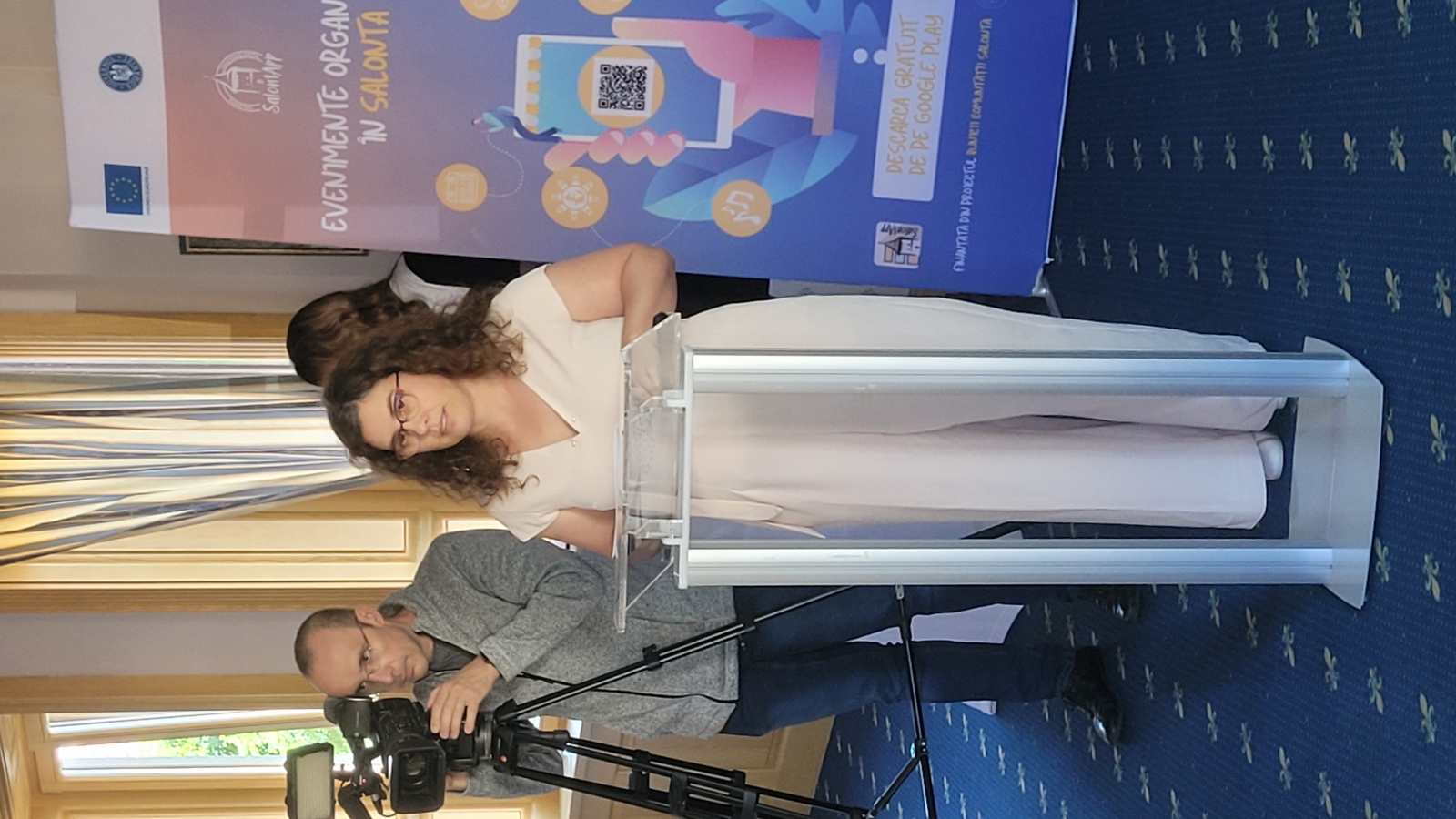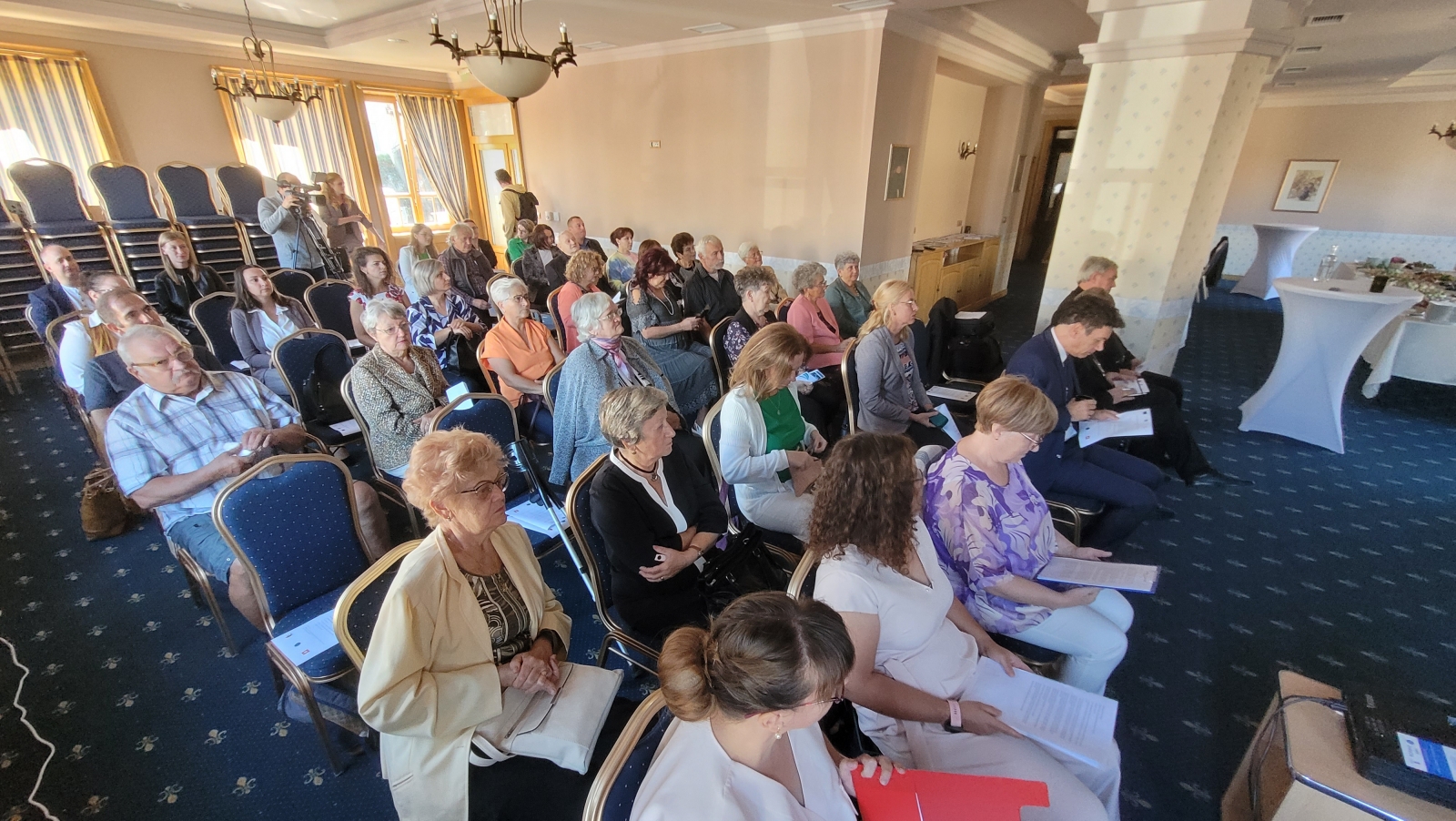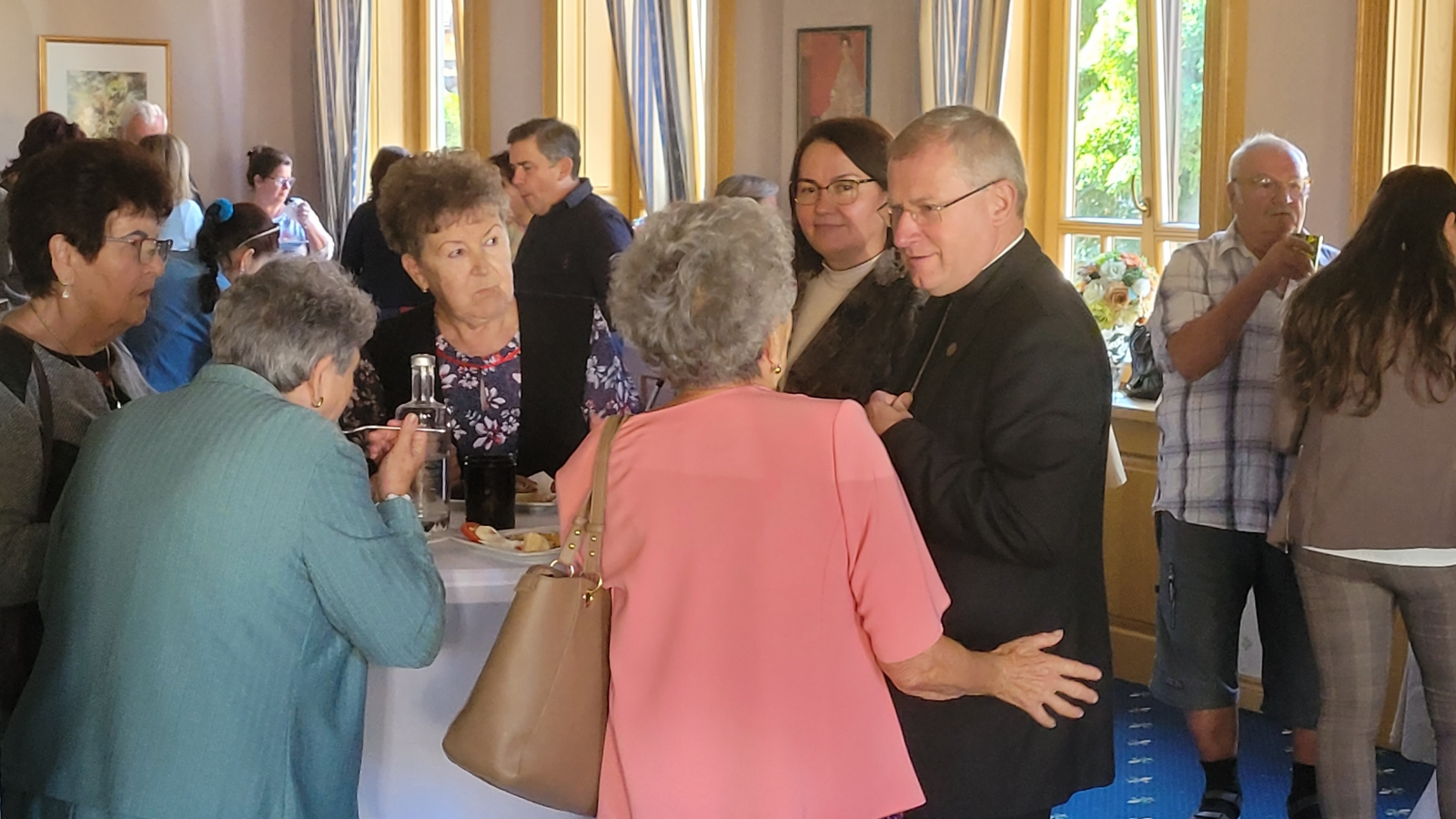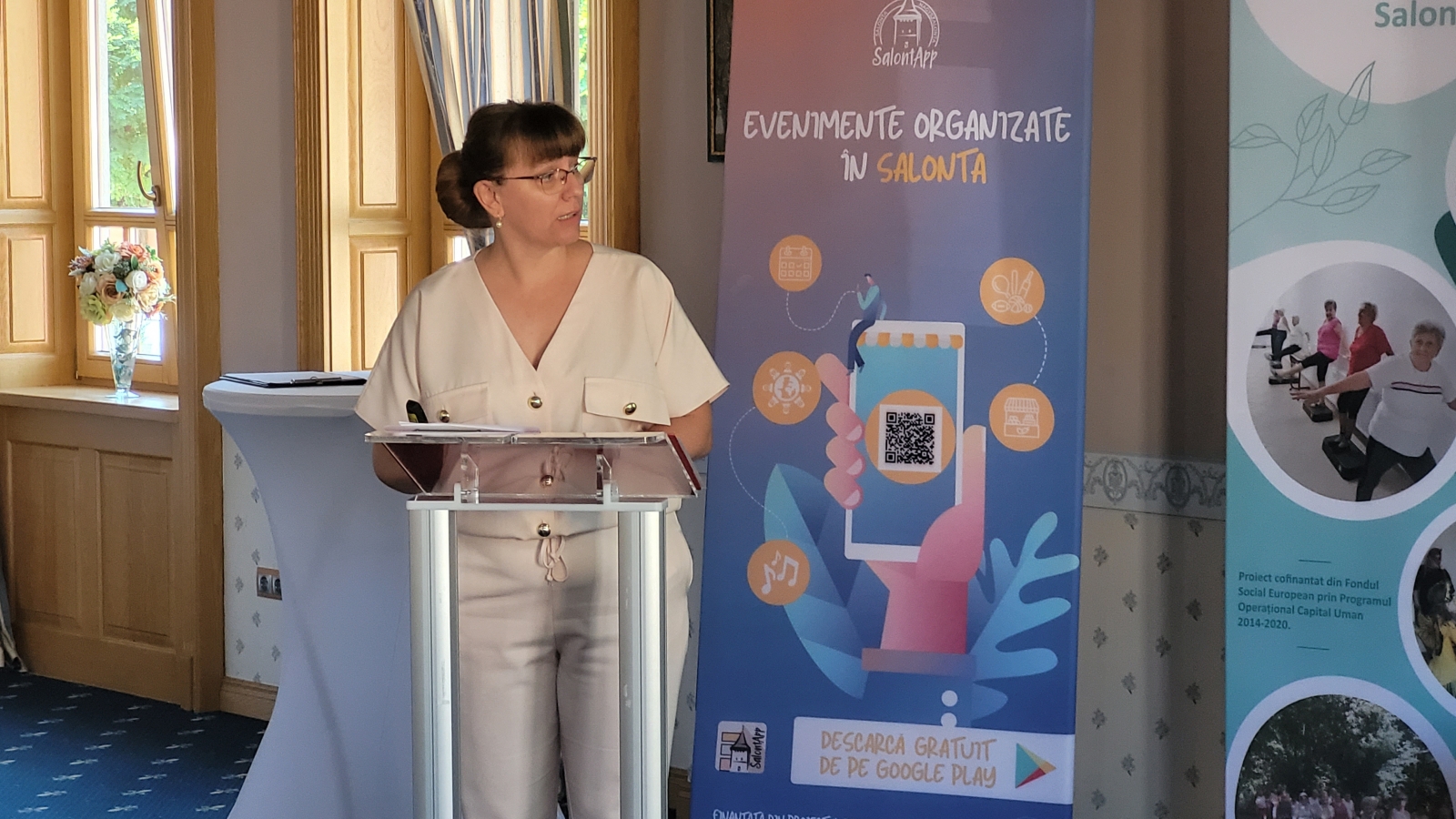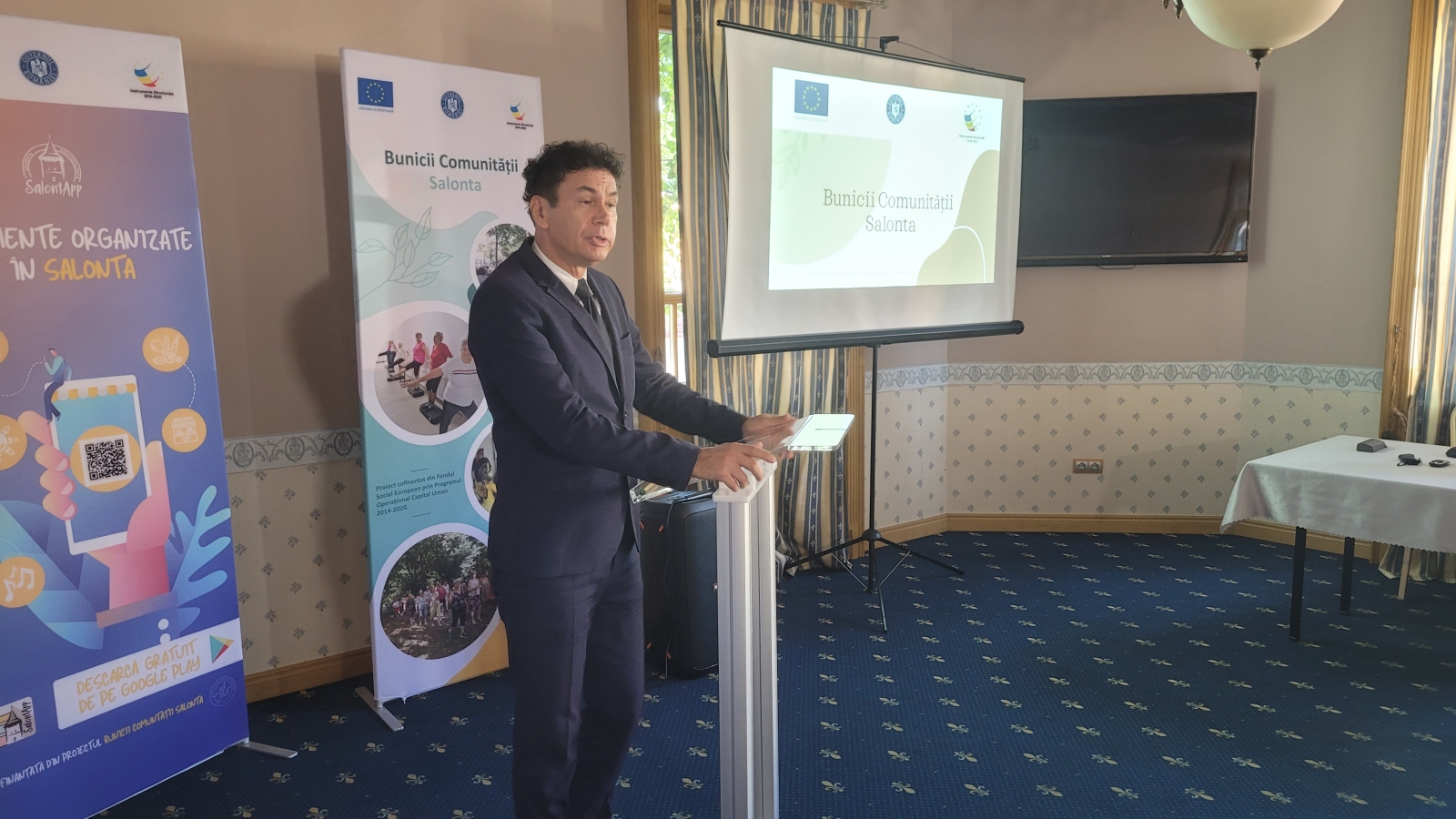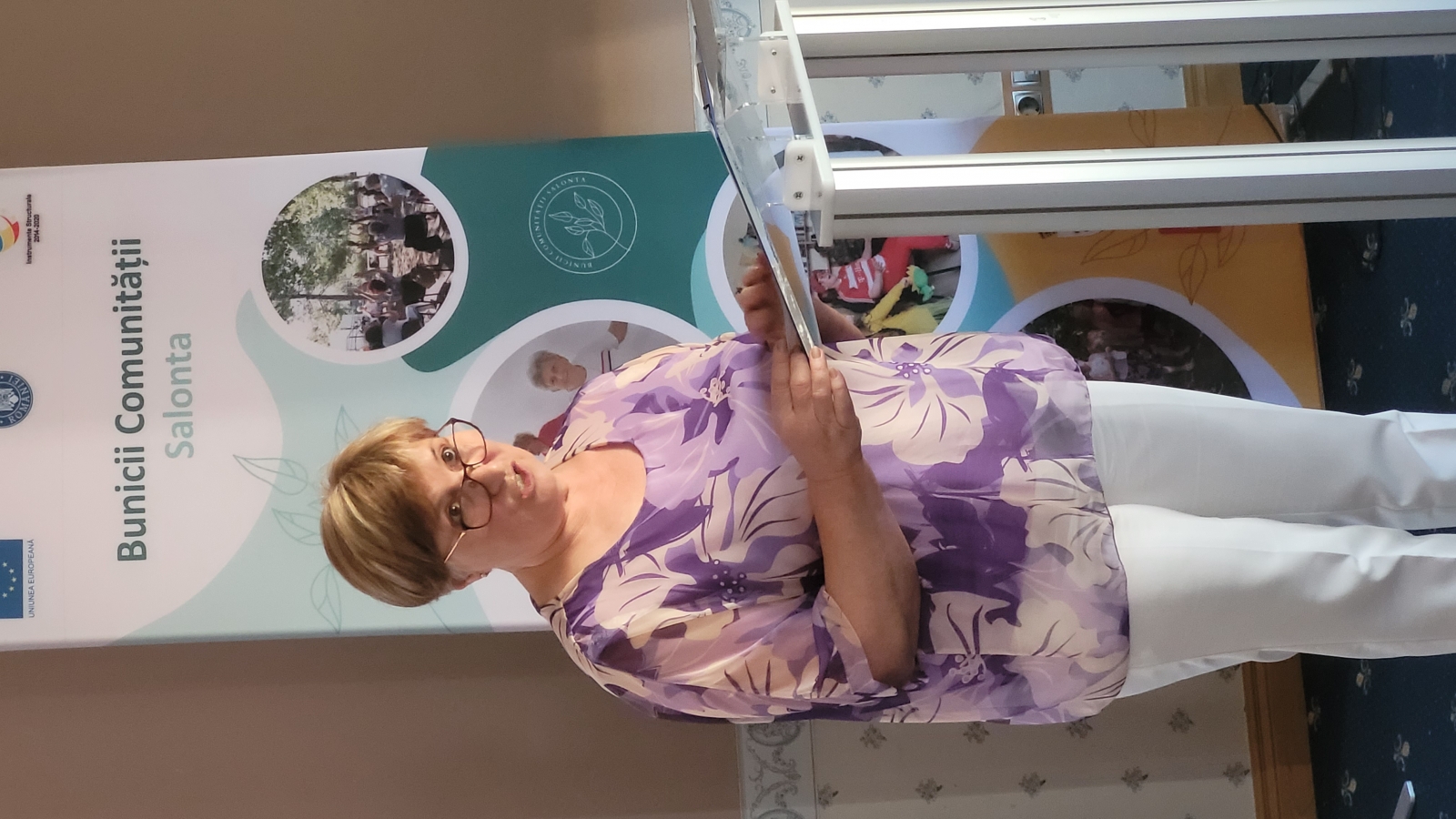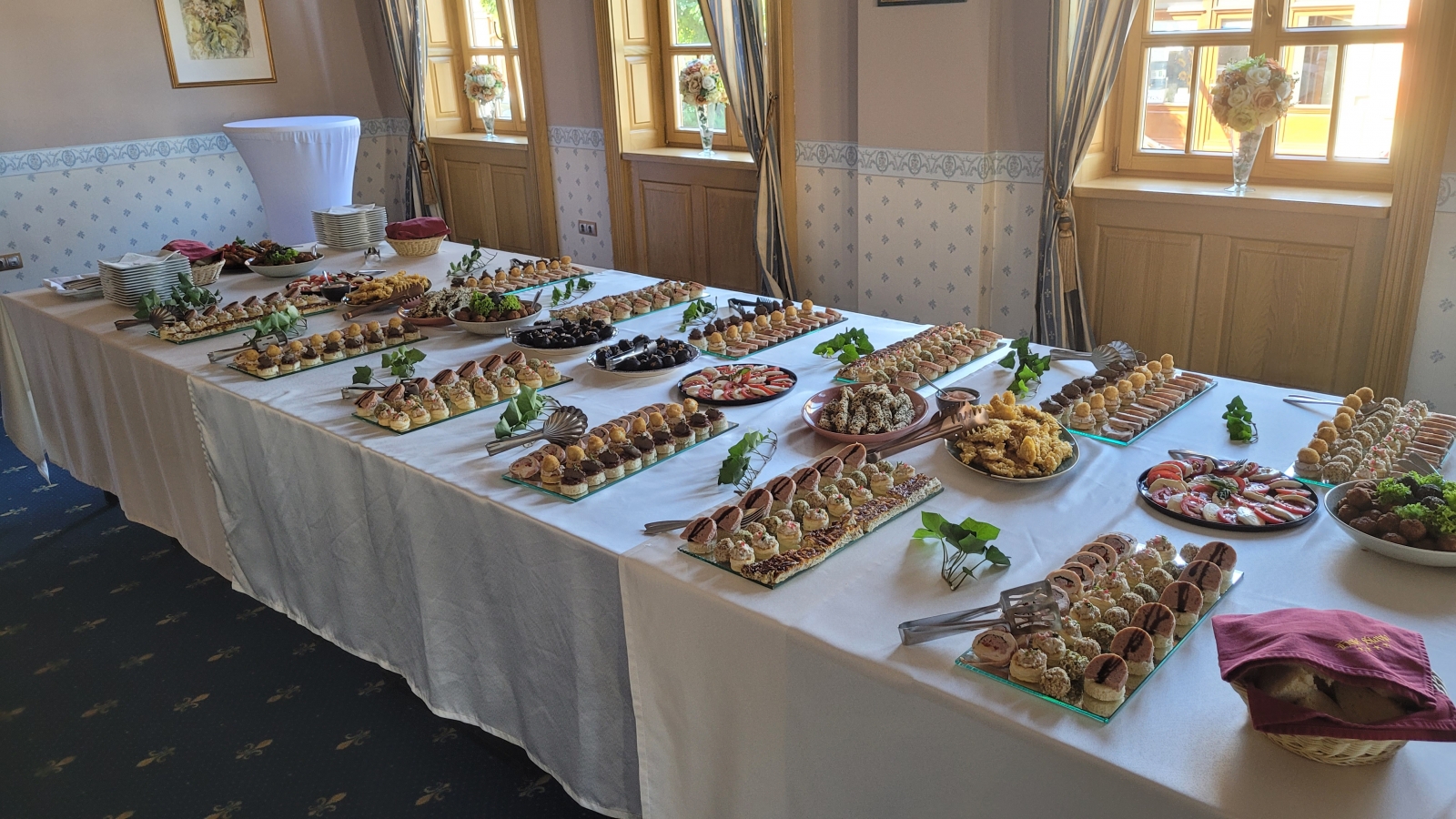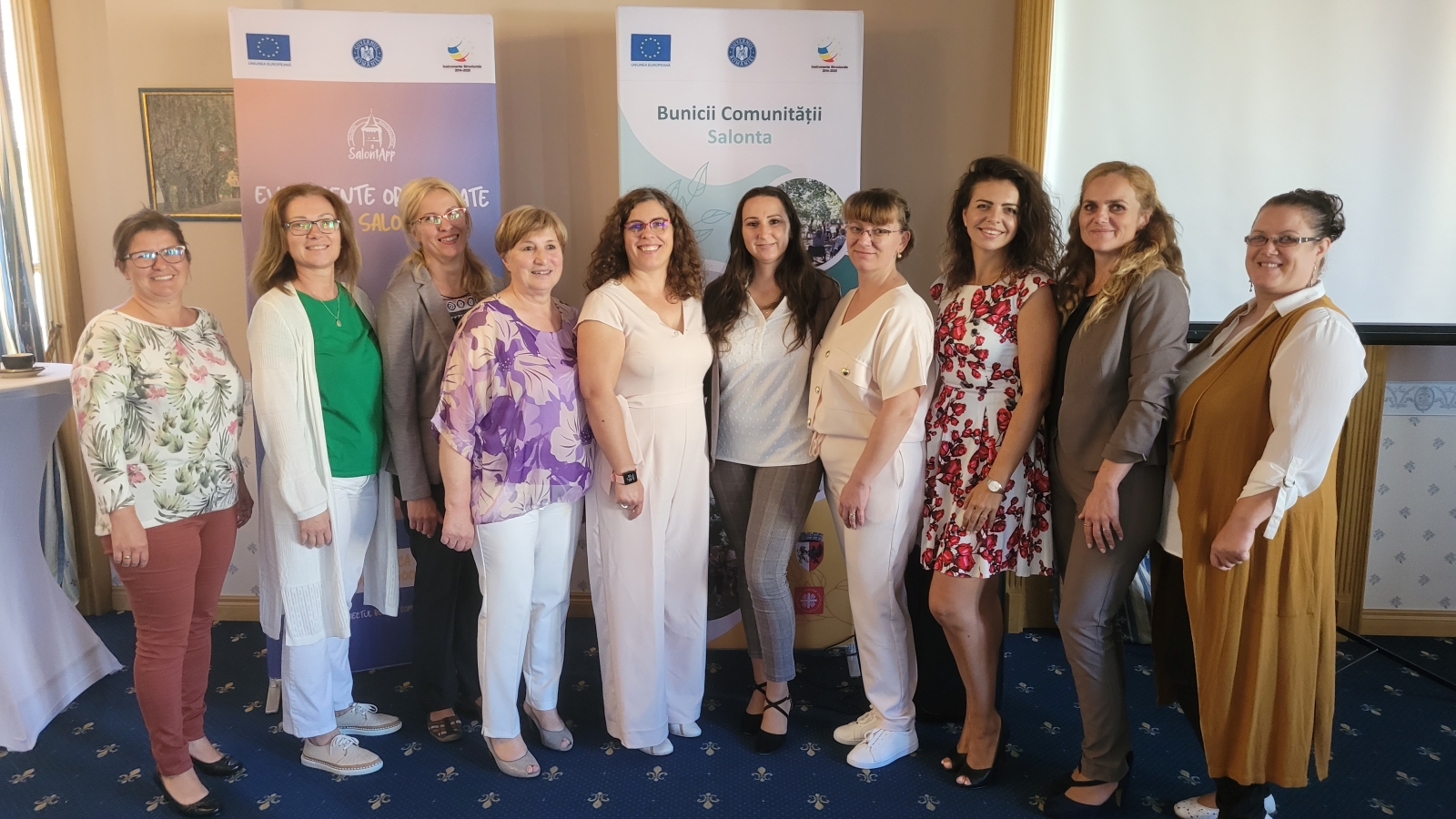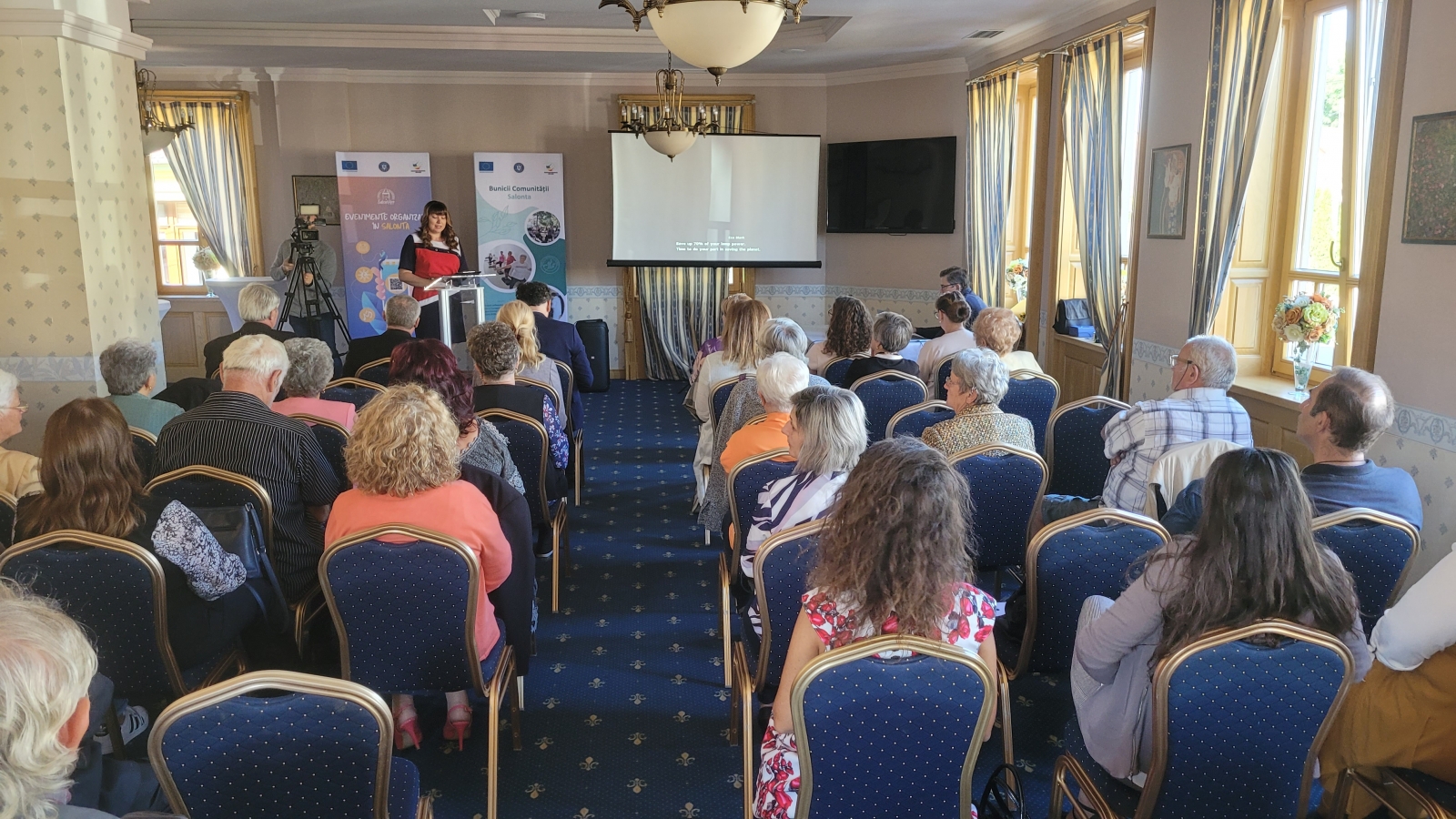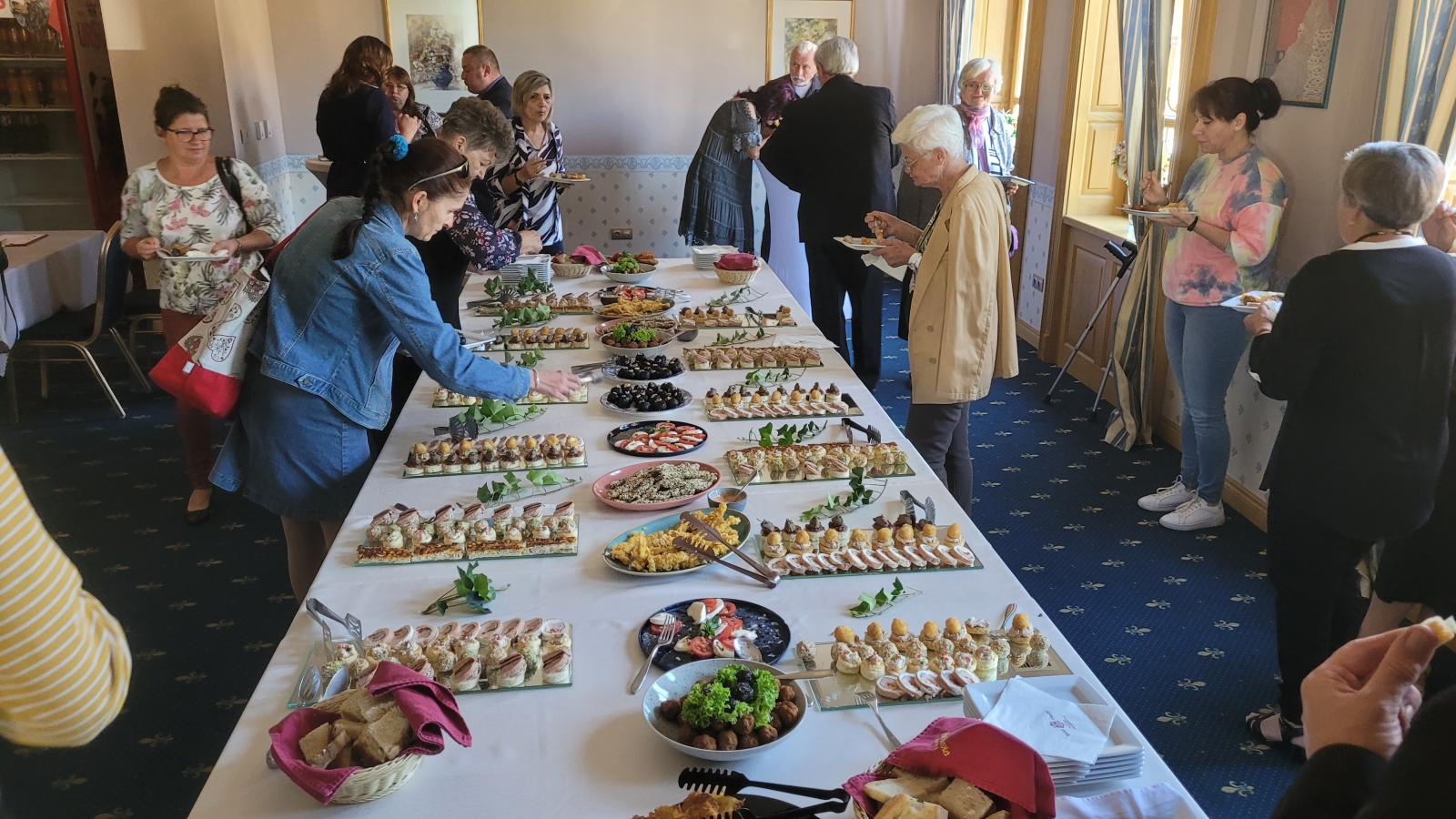At the closing event on Tuesday, project manager Ildikó Molnár greeted the congregation in the conference room of the Slavia hotel, and then the Roman Catholic Diocesan Bishop László Böcskei shared his thoughts, emphasizing that similar projects create value in the community, since the whole society can be judged by how it treats its elderly. The supreme pastor thanked the initiators of the project, as well as the team of Caritas Catolica, which, as a helping hand of the Church, has been providing patient care since 1997 not only in Oradea, but also in Salonta from the very beginning. "May God perfect and carry on with our contribution this beautiful task so that a more lovable world can be realized through us," he stressed. The project provided more than 180 early childhood workers with access to integrated social care.
For his part, mayor László Török reminded us how important the elderly are to the community, because they have worked a lifetime, built the city, and therefore the municipality considers their support a priority. "A community that does not value its elders is not worthy of a bright future," he said. The mayor thanked the project team and especially the Caritas Catolica team, which was a catalyst for the work.
The results of the project were presented by Ildikó Molnár, project manager. She said that in the last 36 months, more than 180 elderly people have been able to benefit from integrated social assistance, of which more than 115 elderly people have visited the Salonta day care center regularly and more than 50 sick people have received free homecare from Caritas. One of the specific targets of the project was for more than half of the assisted persons to overcome their vulnerable status due to the care they received. In addition, 4 employees participated in various professional development courses in the fields of communication and elderly care. Also, an application has been created that can be downloaded to the phone called SalontApp.
The results of the day care center were presented by Tünde Kurucz, the head of the center. The center was established by the Salonta City Hall. The activity started with identifying potential beneficiaries and promoting the service, all of which were hampered by the pandemic. The staff reached over 3000 elderly people through direct meetings and informational materials shared in public. The service soon became very popular among the elderly. As part of day care, the elderly were able to participate in activities such as physiotherapy, psychological counseling, dance for seniors, song sessions, yoga for seniors, computer classes, board games, trips and dance evenings.
The results of the home care service were presented by the project manager Nagy Hortensia, stressing how important and effective it is for the elderly to receive the necessary care in their own home instead of an institutional setting. She also stressed that after the completion of the project, it will be necessary to further involve the local government in the sustainability of the service. The event ended with an informal discussion and a buffet reception, after which stakeholders were able to make a group visit to the Salonta Day Center building.
